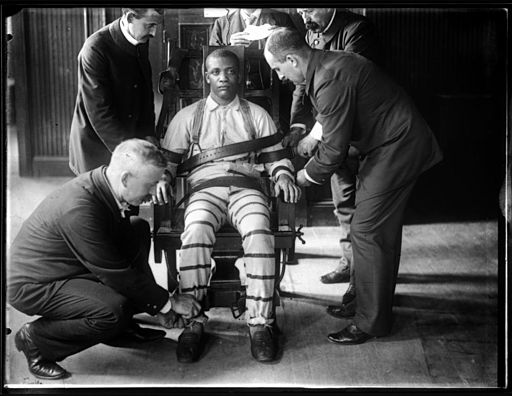
“Hereby it is manifest,” Thomas Hobbes wrote in 1651’s Leviathan, “that during the time men live without a common Power to keep them all in awe, they are in that condition which is called War; and such a war as is of every man against every man.”
Hobbes’s solution to the absence of a “common Power” was a “covenant” with a “sovereign” who would act on behalf of all — what we today call “the state” or “government” — thus bringing an end to the terrible war he discerned.
So, how well has that worked out for us?
Hobbes wrote in the shadow of the Thirty Years’ War, concluded by the Peace of Westphalia, which created the state as we know it. Casualties in that war are estimated at eight million.
Here are some death tolls for a select few of Earth’s near-constant wars since the consolidation of the Westphalian nation-state model in the late 19th century with the unifications of Germany and Italy, and subsequent struggles between/within nation-states:
World War One: 40 million
Russian Civil War: 9 million
Chinese Civil War: 11.6 million
Second Sino-Japanese War: 25 million
World War Two: 85 million
Korean War. 4.5 million
Vietnam War: 4.3 million
Nigerian Civil War: 3 million
Afghanistan Conflict: 2 million
Second Congo War: 5.4 million
The verdict was certainly in by 1918, when Randolph Bourne died and his essay “The State” was published posthumously. The takeaway line: “War is the health of the state.”
Hobbes’s “sovereign” suggestion, as taken, didn’t end war. It put war on steroids.
Political government as we’ve constructed it is geared toward maximizing death to increase its own power and expand its own reach at the expense of everyone. We’ve still got perpetual war of every man against every man. Only now it’s highly organized, well-funded, and waged for the benefit of the political class.
As Leon Trotsky — a “state-ist” himself, but one who hoped for a “withering away” of political government into communism — put it in 1937’s The Revolution Betrayed:
“Whatever be the programs of the government, stateism inevitably leads to a transfer of the damages of the decaying system from strong shoulders to weak. … State-ism means applying brakes to the development of technique, supporting unviable enterprises, perpetuating parasitic social strata.”
What private commercial interest, operating under a weak state or no state at all, would have invented the tank, the aerial bomb, or the nuclear warhead? Such weapons only promise profitability in the context of a strong, powerful states waging war with each other.
I’m often told that my anarchist philosophy and my goal of reaching, at least, a “panarchy” under which each individual chooses a governing entity instead of remaining trapped in the Westphalian Model’s geographic “sovereignty” trap, are unrealistic fantasies worthy only of dismissal.
But if unrealism is a disqualifying factor, Hobbes’s “sovereign” and the state as we know it have, unlike my ideas, had their chance … and are clearly failures when it comes to ending war.
As we stare down the barrel of nuclear holocaust, it’s clearly time to re-think how we do government.
Thomas L. Knapp (Twitter: @thomaslknapp) is director and senior news analyst at the William Lloyd Garrison Center for Libertarian Advocacy Journalism (thegarrisoncenter.org). He lives and works in north central Florida.
PUBLICATION/CITATION HISTORY


